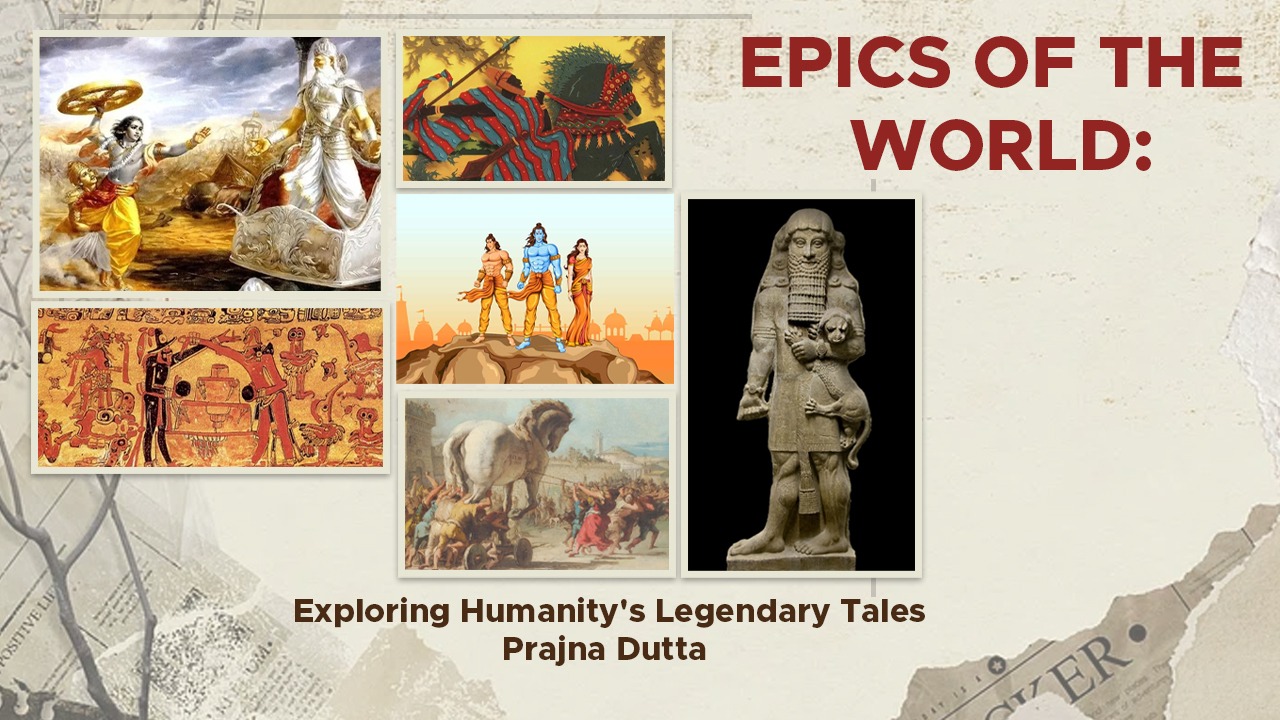Introduction:
Throughout human history, cultures around the world have crafted and preserved epic narratives that transcend time and space. These ancient tales, known as epics, are captivating accounts of heroic deeds, mythical beings, and profound moral lessons. Spanning continents and civilizations, they offer glimpses into the values, beliefs, and experiences of our ancestors. In this article, we embark on a journey to explore some of the most renowned epics from different corners of the globe, celebrating humanity's rich storytelling heritage.
1. The Epic of Gilgamesh (Mesopotamia):
Considered one of the oldest surviving works of literature, the Epic of Gilgamesh dates back to ancient Mesopotamia (modern-day Iraq) around 2100 BCE. This epic narrates the adventures of Gilgamesh, a legendary king who seeks immortality, battles mythical creatures, and grapples with mortality and the meaning of life. It delves into themes such as friendship, power, and the human condition, offering profound insights into the ancient Mesopotamian society.
2. The Iliad and The Odyssey (Ancient Greece):
Attributed to the legendary poet Homer, the Iliad and The Odyssey stand as pillars of ancient Greek literature. The Iliad portrays the Trojan War, focusing on the hero Achilles and the clash between Greeks and Trojans. The Odyssey follows the Greek hero Odysseus' arduous journey home after the war, filled with encounters with gods, monsters, and personal challenges. These epics explore the concepts of glory, honor, and the complexities of human nature.
3. The Ramayana (India):
The Ramayana, attributed to the sage Valmiki, is a revered Hindu epic that narrates the life and adventures of Prince Rama. Set in ancient India, the epic tells the story of Rama's quest to rescue his wife, Sita, from the demon king Ravana. It explores themes of duty, devotion, righteousness, and the triumph of good over evil. The Ramayana has had a profound influence on Indian culture, inspiring art, music, and religious practices.
4. The Shahnameh (Persia):
The Shahnameh, meaning "Book of Kings," is an epic poem written by the Persian poet Ferdowsi in the 11th century. It chronicles the mythical and historical past of Persia, from the creation of the world to the Arab-Islamic conquests. The Shahnameh features legendary heroes, such as Rostam, and depicts the struggles for power, loyalty, and the resilience of the Persian people. It remains a cherished symbol of Persian cultural identity.
5. The Popol Vuh (Maya civilization):
The Popol Vuh is an ancient Mayan epic that recounts the creation of the world and the adventures of the Hero Twins, Hunahpu and Xbalanque. It delves into the Maya cosmology, mythology, and the origin of humanity. The Popol Vuh offers insights into the spiritual beliefs, cultural practices, and worldview of the Maya civilization, and it serves as a vital cultural and historical document.
6. The Mahabharata (India):
The Mahabharata is one of the longest epic poems ever written, attributed to the sage Vyasa. It narrates the Kurukshetra War between two factions of a royal family, the Pandavas and the Kauravas, in ancient India. The epic explores complex moral dilemmas, family feuds, political intrigue, and the philosophical teachings of Lord Krishna. It delves into profound themes such as duty, righteousness, the nature of reality, and the eternal struggle between good and evil. The Mahabharata also contains the Bhagavad Gita, a revered philosophical discourse that has had a significant impact on Hindu philosophy and spirituality.
7. The Epic of Sundiata (Mali Empire):
The Epic of Sundiata, also known as the Sundiata Keita or the Epic of Mali, is an oral tradition from the Mandinka people of West Africa. It recounts the life of Sundiata Keita, the legendary founder of the Mali Empire. The epic celebrates Sundiata's triumph over adversity, his rise to power, and his establishment of a prosperous empire. It reflects the cultural heritage, traditions, and values of the Mandinka people, emphasizing the importance of courage, perseverance, and leadership.
8. The Kalevala (Finland):
The Kalevala is the national epic of Finland, compiled and written by Elias Lönnrot in the 19th century. It weaves together ancient Finnish folklore, mythology, and songs into a comprehensive narrative. The epic follows the exploits of mythical heroes, such as Väinämöinen and Lemminkäinen, and delves into themes of creation, magic, and the Finnish people's deep connection to nature. The Kalevala played a crucial role in shaping Finnish national identity and preserving their cultural heritage.
Conclusion:
Epics of the world are timeless treasures that connect us to our shared human history. They offer profound insights into the values, beliefs, and experiences of diverse cultures across the globe. From the ancient Mesopotamian tale of Gilgamesh to the Finnish Kalevala and beyond, these narratives capture the essence of the human condition, exploring themes of heroism, love, morality, and the quest for meaning. By immersing ourselves in these epics, we gain a deeper appreciation for the rich tapestry of human storytelling and the universal truths they convey, transcending time and cultural boundaries.

Comments